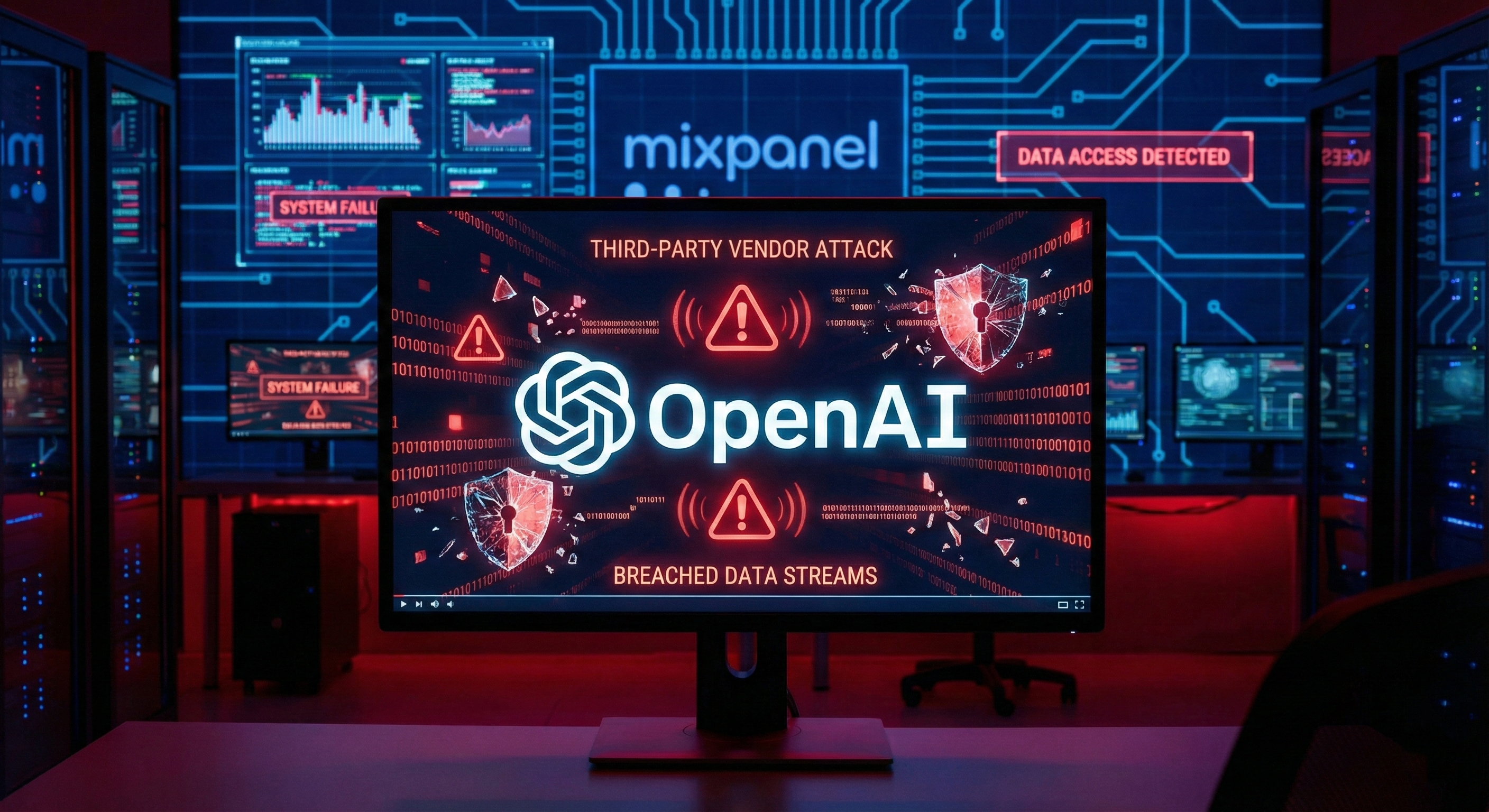OpenAI Data Exposure: What Really Happened in the Mixpanel Cyberattack (2025)
Introduction
In late November 2025, OpenAI confirmed that a third-party vendor—Mixpanel, an analytics service used to monitor platform performance—suffered a cybersecurity breach. While OpenAI itself was not directly hacked, the incident exposed certain non-sensitive user information belonging to OpenAI API customers.
With OpenAI powering millions of apps and workflows globally, the news created immediate concern. Here’s a clear, detailed breakdown of what actually happened, what data was exposed, who is affected, and how OpenAI responded.
What Happened?
On November 9, 2025, Mixpanel detected unauthorized access to a portion of its systems. Cybercriminals were able to extract a dataset containing analytics information from several Mixpanel customers—including OpenAI.
Mixpanel notified OpenAI on November 25, providing a copy of the affected dataset so OpenAI could conduct a full impact assessment.
What Data Was Exposed?
OpenAI clarified that the exposed information was limited to analytics metadata related to API platform users. No sensitive or confidential data was included.
Exposed Data Included:
- Name on the API account
- Email address used for platform login
- Approximate location (city/state/country — based on IP)
- Browser and operating system details
- Referring website URLs
- Organization ID or user ID associated with the API account
What Was Not Exposed:
- ChatGPT chats or conversation history
- API keys
- Passwords or login credentials
- Billing details or payment cards
- API requests or usage data
- Government IDs or KYC documents
This means attackers cannot use this breach to directly access any OpenAI account or system.
Who Is Affected?
Impacted:
- Users of OpenAI’s API platform (platform.openai.com)
- Typically developers, startups, enterprises, and app builders
Not Impacted:
- Regular ChatGPT users
- ChatGPT Teams / Consumer accounts
- Anyone who only uses ChatGPT on web/mobile
If you did not receive a security notification from OpenAI, you are likely not affected.
How OpenAI Responded
OpenAI took immediate steps once the breach was confirmed:
-
Terminated Mixpanel usage
OpenAI completely stopped using Mixpanel across all systems. -
Initiated a detailed forensic investigation
The company reviewed the dataset to determine exactly what was accessed. -
Notified all impacted API customers
Affected users received an official communication outlining the exposed data. -
Strengthened vendor security
OpenAI increased the required security standards for all third-party providers and initiated audits of any service that handles analytics or metadata. -
Published a transparent incident report
The company publicly disclosed details to maintain trust and accountability.
Risk Level: Should Users Worry?
Overall Risk: Low
Because no sensitive data was exposed, the incident poses limited direct security risk.
However, it does create some indirect risks:
-
Phishing & Social Engineering
Attackers could use the exposed:- Name
- Location
to craft targeted phishing emails pretending to be OpenAI, your company, or your app.
-
Developer Impersonation
API developers might receive fraudulent messages claiming API issues, payment errors, etc. -
Credential Harvesting Scams
Always avoid clicking links in suspicious emails claiming “API breach,” “login failure,” or “account verification.”
Why This Incident Matters (Even If It Wasn’t OpenAI’s Fault)
The breach highlights a growing cybersecurity challenge:
-
Supply-chain attacks are rising.
Cybercriminals increasingly attack vendors because they can’t break into large firms like OpenAI directly. -
Analytics tools often collect metadata.
While not sensitive on the surface, metadata can still enable targeted attacks. -
AI companies are high-value targets.
As AI becomes infrastructure for the digital world, attackers see huge advantages in compromising its ecosystem.
How to Protect Yourself (Simple Steps)
-
Enable 2-Factor Authentication (2FA)
This alone blocks most account-takeover attempts. -
Rotate API keys regularly
Especially if you are a developer or run an application on OpenAI API. -
Avoid links sent via email
Always access OpenAI via the official website, not through email links.
Conclusion
The OpenAI–Mixpanel incident is a reminder that even the strongest platforms can be exposed through third-party weaknesses. Thankfully, the breach involved only limited analytics-level data, and OpenAI acted quickly to protect users and terminate the affected vendor.
In today’s AI-powered world, cybersecurity has moved beyond protecting just your own systems — it now includes securing your entire ecosystem of partners, plugins, tools, and vendors.
